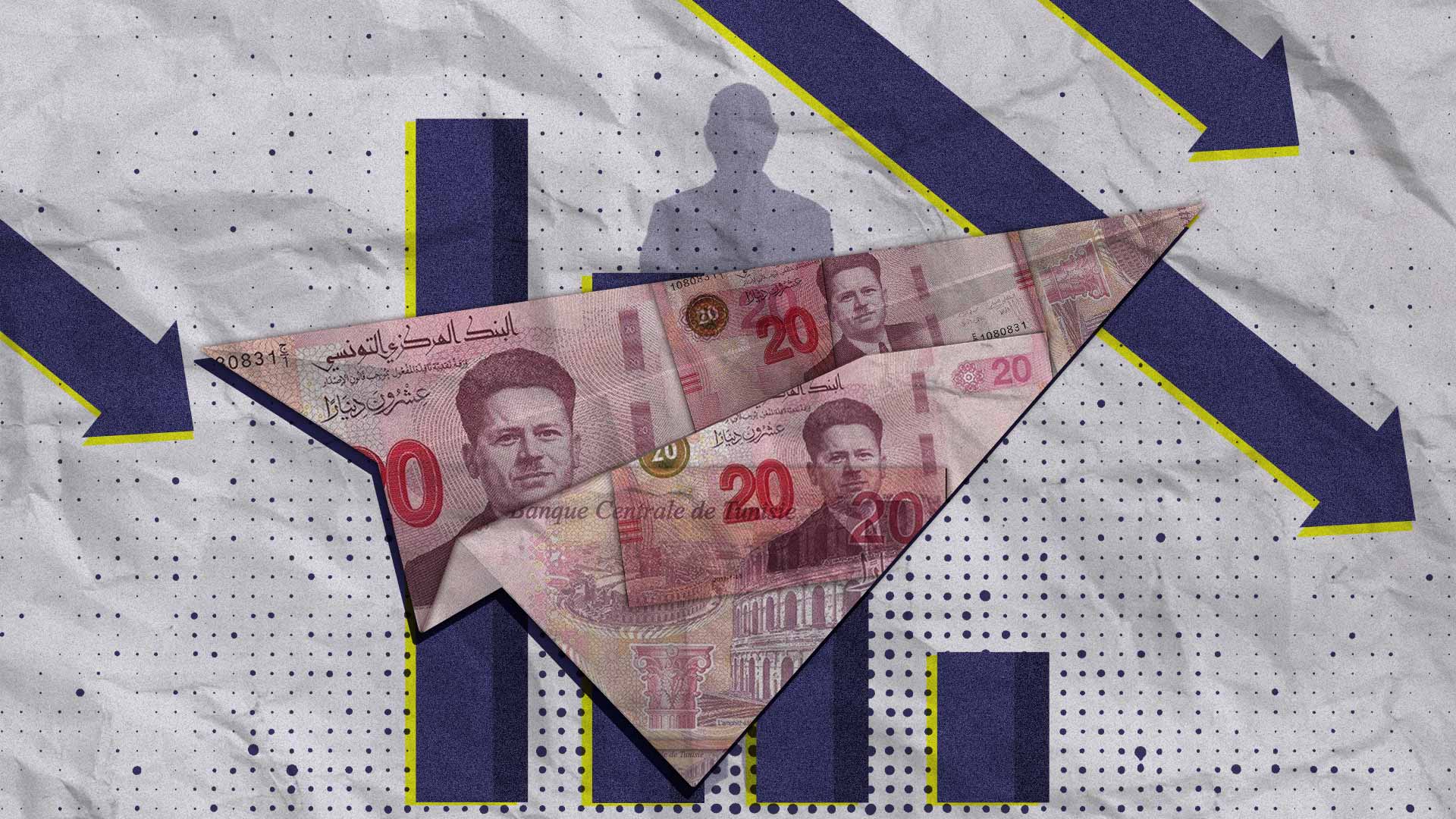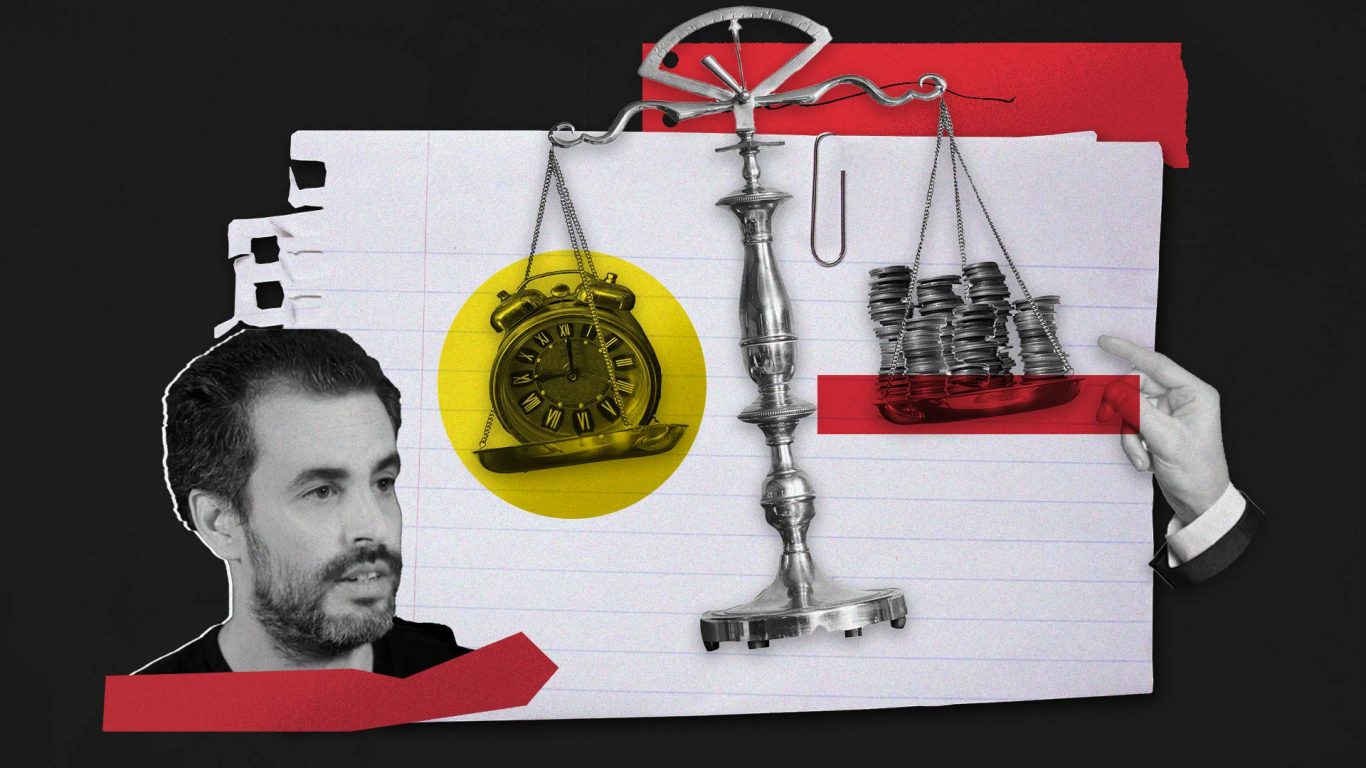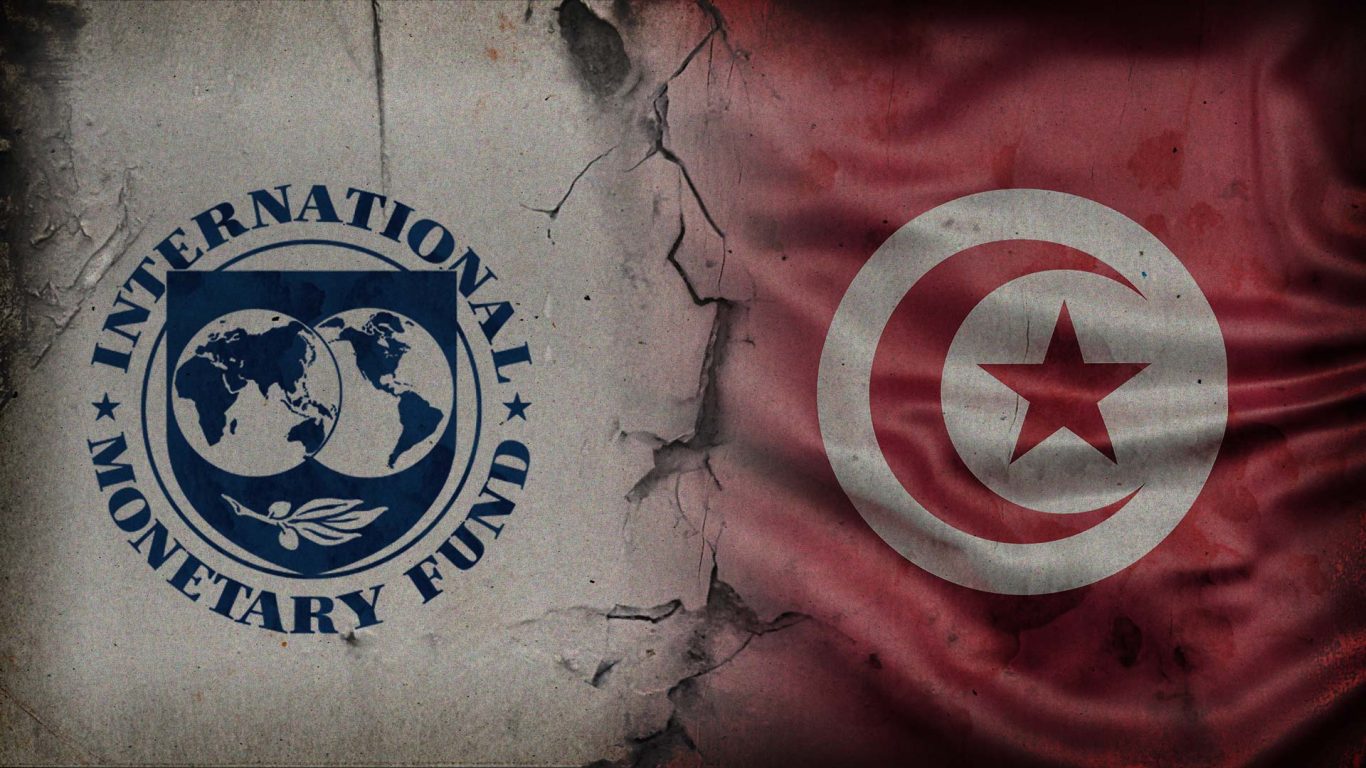Although coffee is exceptionally available on the markets today, its price has gone up by 30%, from 14.600 dinars per kilo to 19.800 dinars, at the request of the Ministry of Commerce. As a result, rationing and stock-outs have become the norm in many grocery stores and other businesses.
The Russian-Ukrainian conflict is often perceived as the main cause of this surge in prices around the world. Yet in Tunisia, war is not the only factor fuelling inflation. Kais Saied's economic approach is, in reality, a major contributor to this inflationary trend.
Lack of vision as war in Ukraine unfolds
On February 24, 2022, at 5:30 a.m Moscow time, Vladimir Putin announced Russia's invasion of Ukraine. The war's economic consequences have been, and still are, devastating for countries across the globe. Ukraine is unable to export cereals, and energy costs have skyrocketed worldwide.
During the same year, the average global inflation rate stood at 8.3%, versus 3.48% in 2021 and 1.92% in 2020. For instance, Morocco recorded its highest rate in 31 years, and Algeria its highest in 26 years, reaching 9.3%.
Inflation trends in the Maghreb and worldwide (2012-2022)
As far as Tunisia is concerned, the 2022 average inflation rate reached its highest level since 1984, rising to 8.3%. By February 2023, this rate had climbed to 10.4%. With the nation relying heavily on Russia and Ukraine for its wheat imports, ensuring food security remains a challenge. What steps has the Government taken to address this issue? The Presidency's response has primarily focused on combating "speculators" and those allegedly plotting for the country’s economic downfall.
“Prices have skyrocketed and the State hasn't even suggested so much as a glimmer of a vision," says Hamza Meddeb, researcher and political economy analyst.
While other countries are introducing economic recovery plans to deal with the crisis, Kais Saied's Tunisia is shirking all responsibility. Announced in March 2022, the fight against speculators has, so far, failed to produce any results. Shortages still prevail, as do soaring prices.
Consumers haven't seen any measures taken to control these surging prices. In October 2022, the minimum wage was raised by a mere 25 dinars for a 40-hour work week, reaching 390 dinars, and by 20 dinars for a 48-hour work week, totaling 459 dinars per month. However, a study conducted by the Friedrich Ebert Stiftung Foundation in spring 2019 revealed that well before the Ukraine war and its aftermath, a family of four living in the Greater Tunis area would require a "dignity budget" of 2 400 dinars per month. This sum is equivalent to six times the current minimum wage for a 40-hour worker.
Unresolved structural problems
Since January 2022, before the war broke out in Ukraine, Tunisia had already been grappling with wage delays and shortages. In fact, the current economic crisis is the result of a long-standing neoliberal policy that’s been pursued since the 1970s. The socio-economic consequences of the said policy have so far remained unresolved.
Following a brief socialist phase under Ahmed Ben Salah in the 1960s, Hedi Nouira, former Central Bank Governor, decided to introduce liberalism into Tunisia. With the expansion of privatization and free trade agreements, the export rate increased, but so did the nation's reliance on imports. This meant that the State had to secure its revenues in foreign currency, at the great risk of collapsing.
To achieve this, a major investment was made in “low-cost” tourism. Hamza Meddeb explained that “the Tunisian model, developed in the 70s, is essentially based on cheap labour. Since then, this model has only been fed with extremely low wages”.
Still, the State has never been able to repay its foreign debt, which reached 14.859 billion dinars in 2023, against 11.916 billion in 2022 and 7.456 billion in 2021. This means that, in the space of just two years, the country's foreign debt has doubled.
Tunisia's domestic and foreign debt trends since 2021
In addition, the liberal pressure exerted by the International Monetary Fund (IMF) has driven public services to the brink of collapse. Amine Bouzaiene, a researcher in social and fiscal equity stated that, “the State, which used to have a proactive policy regarding public services, is now applying a policy of budgetary austerity. Over the past 3 decades, public services have unfortunately suffered a significant decline, particularly in the healthcare and education sectors”.
The researcher further highlighted that “there was a significant shift on the fiscal front as well (...) We dismantled our income tax, leading to reduced contributions from the wealthiest and highest earners. Corporate taxes were lowered, and the taxation of capital was largely disregarded. In essence, the wealthiest are no longer making a sufficient tax contribution.”
On the same subject
“The long-awaited break never came”
For many Tunisians, July 25, 2021 symbolized a glimmer of hope. Meddeb believes that people were expecting a departure from what the Mechichi administration and all the other previous Governments had done. Today, however, although Kais Saied holds almost all institutional privileges, he hasn't actually done anything to save the country from economic and social collapse.
“He promised that things would get back to normal. But the performance hasn't actually changed. The same economic policy was maintained”, declares Hamza Meddeb.
Instead, Kais Saied and the Bouden Government he appointed have simply continued the same austerity policy adopted by their predecessors. When Najla Bouden took office in October 2021, negotiations were already underway with the IMF for a 1.9-billion-dollar loan.
Likewise, in 2013, when Tunisia's economy was undergoing substantial decline, a reform program had to be elaborated in order to secure a loan. The IMF itself made recommendations on the broad outlines of the said program.
For the past decade, these recommendations have included the gradual reduction of subsidies and the increasing privatization of public services. As Amine Bouzaiene explained, “the program that was drawn up is perfectly in line with the IMF's prescriptions. So; although it may not have been dictated, the challenge for the Tunisian Government was to adhere as closely as possible to the IMF's recommendations.”
The 2023 Finance Law was perfectly aligned with these recommendations, as subsidies for basic commodities were cut by 33%, dropping from 3.771 billion dinars in 2022 to 2.523 billion dinars in 2023. Cereal subsidies were the hardest hit, with a 42.61% cut. State subsidies for fuel have also been reduced by 25.7% over the same period.
Trends in the cost of basic commodity subsidies between 2019 and 2023
Consequently, the program developed by the Bouden Government is likely to put a strain on Tunisians' finances, primarily affecting the most vulnerable segments of society, and more than ever the middle classes, many of whom depend on the subsidies introduced in 1956, just after the country's independence, to support consumers' purchasing power. In fact, these subsidies serve to mitigate poverty and ensure that the most economically disadvantaged groups can afford basic necessities at an affordable and controlled price. Back in 2013, the National Institute of Statistics (INS) projected a 3.6% increase in the poverty rate should the subsidies be lifted.
The current threat of lifting of subsidies is reminiscent of the “ bread riots” which broke out in January 1984, when the Tunisian authorities decided to remove subsidies on cereal products.
With his approval of the 2023 Finance Law, the President has turned his back on these social categories who would struggle even harder to survive without these subsidies. Saied's promise to save Tunisians from hunger now appears to be moving in exactly the opposite direction.
As far as public services are concerned, education still accounts for a substantial share of the budget for 2023, while the healthcare sector remains neglected with a mere 6.79% of the State budget. The transport sector received a meager 1.87%, equipment 3.49%, while a combined 17.52% was allocated to the Ministry of the Interior and the Ministry of Defense.
It’s also worth noting that more than half of the 8 398 new positions projected for 2023 will be assigned to the Ministry of Defense, while only 1 487 positions will be divided between different Ministries (Ministry of Equipment, Ministry of Transport, Ministry of Health, etc.), with no real indication of the number of positions available in each Ministry.
How is the State currently surviving?
The Government's austerity policy has, so far, failed to save the State from collapse. Hamza Meddeb believes that Tunisia is surviving thanks to three main factors: shortages, taxes and private banks.
“These shortages are no coincidence. They’re simply the outcome of a political choice made by a Government wishing to preserve its currency”, says the researcher.
In fact, flour, milk, coffee, sugar, etc. are all imported in foreign currency. However, during the 2015 terrorist attacks, tourism, one of Tunisia's main foreign currency sources, suffered a significant blow with a 25% decline. In 2020, the Covid-19 crisis added insult to injury, and the State was still struggling to build up its foreign currency reserves. As a result, one of the measures taken by the authorities was to conserve currency reserves by reducing imports. According to the INS, Tunisia's import rate fell by 0.6% during the first half of 2023, compared to a 32.4% increase over the same period in 2022.
Kais Saied and his economic policy are essentially a continuation of this method. And yet, he is the last person to take responsibility. The President tends to put the blame on certain speculators, known only to him, for deliberately influencing production channels in order to disrupt political power and provoke social unrest. He was quick to call it a conspiracy during his visit to the Ministry of Agriculture in May 2023, when the bread shortage was at its peak.
In a press release issued by the Presidency, Kais Saied even went as far as stating that the situation was due to “efforts by some to worsen the situation and generate crises”.
For Hamza Meddeb, however, the argument that the shortage is caused by speculators doesn't hold water. “The main foodstuffs that have vanished from the Tunisian market are imported and subsidized by the State. It's in nobody's interest to speculate on subsidized products”, he adds.
In reality, Tunisians are primarily the ones who bear the burden of this situation, through income tax, consumption tax, and VAT. Nearly three-quarters of the 2023 State budget, amounting to 40.536 billion dinars, comes from taxes on the population. 44% is derived from consumption tax plus VAT, while 28% comes from income tax, summing up to a total of 72%. In contrast, companies only contribute a meager 12.5%.
Tax revenue trends since 2020
With inflation at its peak, Najla Bouden's Government decided to raise income taxes by 8.53% compared to the previous year, causing an unprecedented drop in Tunisians' purchasing power.
Aside from shortages and taxes on the population, the Tunisian State also owes its survival to domestic loans granted by local private banks. This practice was first introduced in 2017, and has persisted ever since. In May 2023, Sihem Boughediri Nemsia, the current Minister of Finance, welcomed a new foreign currency loan granted by 12 local banks, amounting to 400 million Tunisian dinars. While this loan will save the country from having to resort to external borrowing once again, it won't mitigate the inflationary trends that have plagued Tunisia for several months now. Quite the opposite, “it will only fuel it”, according to Hamza Meddeb.
Failed negotiations with the IMF
According to Hamza Meddeb, “there is only one viable solution” to the crisis: “sign an agreement with the IMF”. However, the ongoing negotiations in Tunisia are problematic given the measures recommended by the IMF. These differences not only compromise the agreement with the Fund, but also reveal the gap between the President and his Government.
Kais Saied has been firmly rejecting the IMF's “diktats” for several months now. The European Union and the United States are also involved in these negotiations in an attempt to persuade the President to accept the agreement. This is particularly true of the EU, which is clearly concerned about a possible “migration crisis” if the country’s economy remains unstable.
By “ diktats”, Kais Saied is specifically referring to the conditions imposed by the donor, which include the gradual reduction of subsidies for basic commodities. It was for the sake of “social peace”, as he put it, that Kais Saied never publicly accepted these reforms, which were supported by the Fund and negotiated with the Government. And yet, they are clearly present in the 2023 Finance Law.
The said Law was in fact enacted by the President of the Republic, as stated in Article 103 of his new, unilaterally drafted Constitution. Without his signature, this Law and its reforms cannot be implemented. This gave him the option of refusing to accept the subsidy cuts contained in the Law, or demanding a fresh parliamentary review, which he didn’t pursue. So, while his speeches are full of defiance against “diktats”, his actions display nothing but submissiveness.
Viable alternatives are currently being considered, but so far there are no tangible avenues. Between the mirage of the BRICS alliance, Algeria, and the illusion of the Criminal Conciliation Commission, no one knows whether Kais Saied has a plan in mind to substitute the need for the IMF. One thing is certain: the President wants to rely on “ourselves”, a phrase he uses every chance he gets, without going into the details of how this might be possible in terms of autonomous economic policy.
On the same subject
Amine Bouzaiene, unlike Hamza Meddeb, is against accepting the IMF's conditions, but acknowledges that addressing Tunisia's economic challenges necessitates assistance from any international financial institution, given the country's currency requirements. “Our external financing needs don't just aim to stabilize the budget; they're crucial for meeting our currency requirements. We need currency reserves, particularly to be able to meet our import requirements, and to be able to pay off our debt.”






